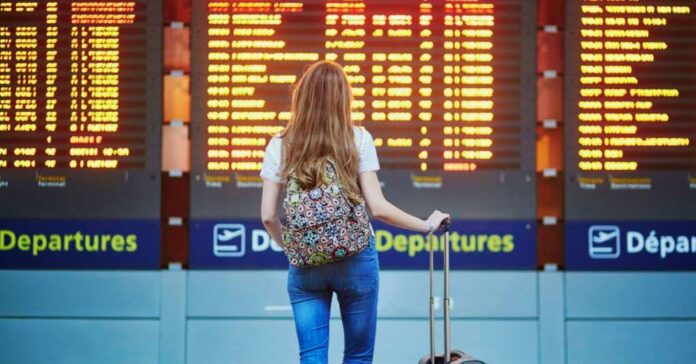
In a move that may have some airline executives reaching for their oxygen masks, the U.S. Department of Transportation (DOT) just decreed that airlines must automatically refund your money for canceled flights. And, as if that wasn’t enough to disturb the calm skies of airline boardrooms, they must also now disclose all those pesky fees upfront during the booking process. Say goodbye to the golden age of “surprise! You owe more!”
The new regulation requires airlines to provide cash refunds to passengers for canceled flights. The refunds must be given promptly. Additionally, the Department introduced another rule that compels airlines to reveal all fees at an earlier stage during the booking process.
“Passengers deserve to get their money back when an airline owes them,” said U.S. Transportation Secretary Pete Buttigieg. Buttigieg also noted that the money should be returned without headaches or haggling, adding, “This new regulation establishes a clear standard that obligates airlines to quickly issue cash refunds to passengers.”
According to the new rule, passengers have the right to a refund under the following circumstances:
- Cancellations or substantial alterations: Passengers are entitled to a refund if their flight is either canceled or undergoes significant changes. A significant change is defined as a departure or arrival shift of more than three hours for domestic flights and six hours for international flights.
- Extended baggage delays: If a passenger’s checked baggage is delayed beyond 12 hours after a domestic flight’s arrival or between 15 to 30 hours after an international flight’s arrival, based on the flight duration, they are eligible for a refund of the baggage fee, provided they have filed a mishandled baggage report.
- Unprovided additional services: If a passenger pays for additional services such as Wi-Fi, seat selection, or in-flight entertainment, and these are not provided, they are entitled to a refund of those specific fees.
Airlines for America, a representative trade group for major airlines, noted that its member carriers often surpass the DOT’s regulations on consumer protection. It reported that the 11 largest passenger airlines in the U.S. issued refunds totaling $43 billion from January 2020 to December 2023 and also provided other forms of compensation, averaging about $900 million in monthly refunds.
The group emphasized that U.S. airlines strive to offer optimal service, which includes clear communication about pricing, fees, and ticket conditions. “U.S. airlines provide numerous options and enhanced services, with ticket prices, including additional revenues, at historically low levels. In 2023, the real average domestic round-trip fare, inclusive of extras, was 14 percent lower than in 2010,” the statement said.
However, complaints against airline companies tell a different tale. Complaints reached their peak during the COVID-19 pandemic. In 2020, at the pandemic’s peak, refund-related complaints constituted 87% of all complaints about air travel services received by the DOT.
DOT officials have noted that refund issues still represent a significant portion of the complaints the Department continues to receive.
The DOT’s other key rule now requires airlines to clearly disclose fees for first and second-checked bags, carry-on items, and changes or cancellations to bookings immediately.
Buttigieg pointed out that airlines should be vying for passengers’ business by offering the best service rather than by seeing who can ambush travelers with the steepest hidden fees. By ensuring airlines are transparent with their customers, Buttigieg believes this rule will prevent over half a billion dollars a year in needless or unforeseen fees.
Airlines for America asserted that its member carriers are fierce competitors in the industry, emphasizing that from the first search to touchdown, passenger airlines offer transparency and a wide array of choices to consumers.
So, next time you find yourself glaring at a canceled flight notification or sobbing into your overpriced airport salad because your luggage took a detour to Timbuktu, remember: there’s a silver lining. Thanks to these new rules, you can now get your money back without having to perform an interpretative dance or engage in a verbal wrestling match with customer service. Here’s to hoping your next flight is less about financial surprises and more about the friendly skies!















